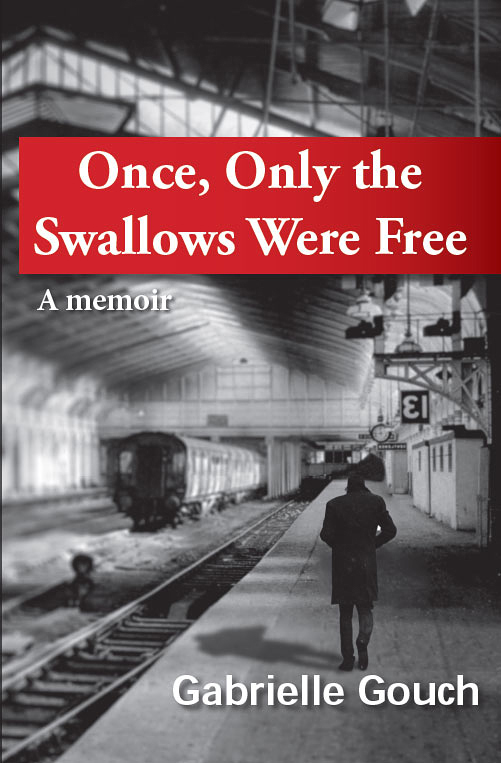|
Read extracts, Gabrielle Gouch, Once, Only the Swallows Were Free‘Poor Tom. What bad timing to have come into the world in an era when maths, science and engineering were considered the only knowledge worth pursuing. And what bad luck to be in Romaniaat a time when public life had become riddled with lies and propaganda. Seeing what Communism was turning into, my father decided that maths remained the only truth, and Tom had to attain a good standard in the only subject matter worth learning. By hook or by crook, he would teach maths to Tom. “In our family, you did not deserve to live if you were no good at maths,” Tom said to me the other day. And smiled. We both knew what he was referring to. My father gave Tom maths lessons regularly. Tom dreaded them. He must have felt like a man about to face a trial, a trial for which he already knew the outcome. Still, he kept trying. But he could rarely come up with the correct answer. Simple sums he did eventually master, but when he graduated to more complex questions, he was lost. I still remember that afternoon, their last serious maths lesson. I must have been around seven years old… Tom is sitting at the desk, on my father’s left. I am sitting on the sofa, drawing. My father is explaining something about two cars. A and B, something about speeds, distances and travelling times. “The question is, how many hours will it take for car A to meet car B? Is everything clear?” he asks for the last time. Tom nods, takes a pencil and starts writing in his notebook. He rubs something out, then starts writing again. Then there is more rubbing and more writing. “But Tom,” my father interrupts, “if…” and explains something. “Aaah,” Tom says and returns to his calculations. My father is watching over his shoulder, waiting. I am waiting too. Finally Tom has the answer. He shows his father the results and explains what he added to what and what he divided by what. But something is not right and Tom starts writing again. After a while my father asks something. Tom cannot answer. “Concentrate!” my father shouts and I see his right hand in the air, then on Tom’s face and Tom sliding sideways. My father jumps up to catch him. But Tom’s chin has hit the wooden arm of the big carved chair. Oh no! Tom is bleeding. “Roza! Roza, I need your help! Quickly!” My mother comes running, panic on her face. She takes a look at Tom and runs out again, then back with a small bottle and a few bits and pieces. She disinfects Tom’s chin and puts a bandage on it. But Tom’s blood keeps seeping out around the bandage. “We’ll have to take him to the doctor,” my father says, “straight away.” By evening Tom’s chin has stopped bleeding. We are having dinner. After every spoonful of soup Tom tilts his head back as he swallows. When I ask him why he eats so strangely he says in a hushed voice: “If I don’t hold my head up, the soup will leak out through the hole in my chin.” “Really?” “Like an open tap.” He leans towards me and whispers in my ear, “All because of maths.” |
||
|
|
|||

